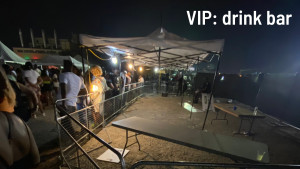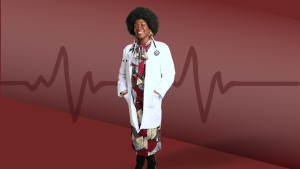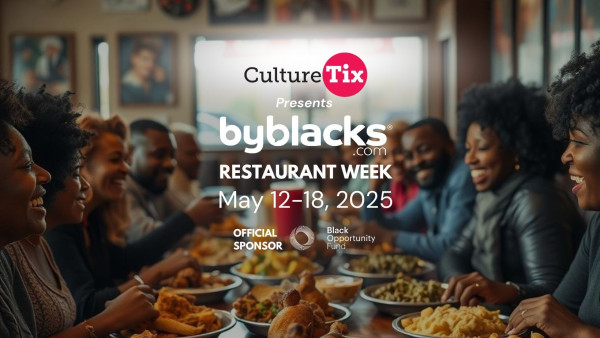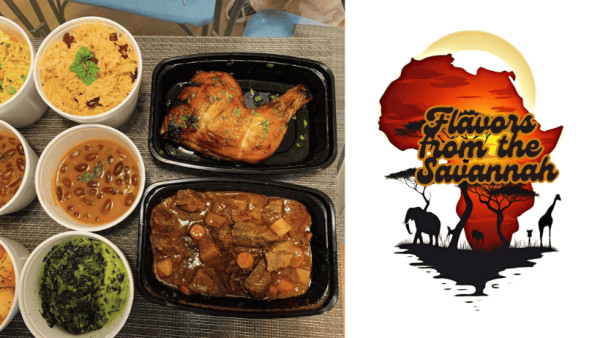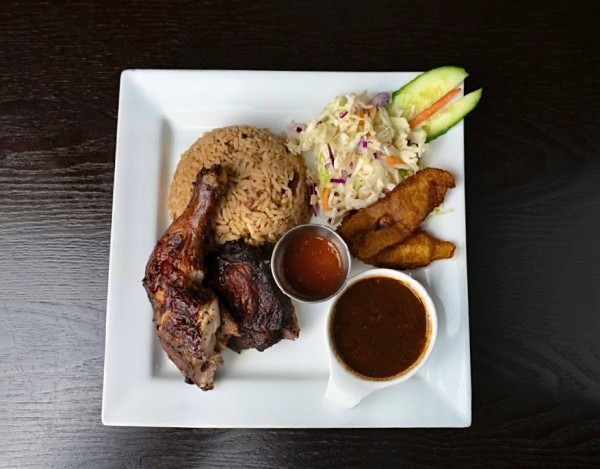I say that because the first weekend in August was the National Black Canadian Summit. You may not have noticed or heard of it because it was the same weekend as Caribana. It was a scheduling nightmare between Toronto 'bana and palancing or Halifax and sitting down with some of the country’s leading Black organizations and youth. So I took the path less travelled and went to the Summit. This is what I saw.
Lo from on high — well, okay, the fifth and sixth floors of the Halifax Conference Centre — did the sermons rain down. I haven’t been to church since my desk was a tree, but this was damn near close. We start at the end of the Sunday finale when there was a non-denominational Black Baptist church service that was as non-denominational as the American National Prayer Breakfast.
The Reverend Dr. Lennett Anderson brought the house down, and the Nova Scotia Mass Choir sang the hell out of a hymn. Reverend Dr. Anderson is an accomplished bringer-down-of the house, which he had put on display at the beginning of the Summit in the decidedly less pastoral setting of a panel on human rights.
“As people of colour,” said the Reverend Dr. Anderson, “we are having a race seminar every day that we live."
Sitting in the front of the room with panellist Gyasi and Kirk Johnson, he represented one of his congregants, Angela Davis, whose interaction with racist policing leaves her shaken and unable to speak publicly about the case. I am reminded of her traumas during one of the first panels of the Summit, a session on mental health. Dr. Jude-Mary Cenat, a psychology professor at the University of Ottawa says, “All of us are paying the Black tax, but in Canadian society, Black women are paying a heavier tax.”
At that point, the Summit hadn’t even technically begun. These pre-opening preliminary panels are just a throat-clearing exercise. The choir is just running scales, really. Which brings us to Michaelle Jean, who officially opened the summit along with activist Vanessa Hartley in a speech that connected the Haitian Revolution of the 1790s to the Black Loyalists who arrived in Nova Scotia in the 1780s.
Jean notes that both events happened within years of each other, indelibly connecting not just her and Vanessa, a descendant of Black Loyalists, but also Canada with Haiti, and the emancipation struggle with the rights of Black Loyalists. Clearly, this undertaking—convening as many Black folk from around the colonial project called Canada—is ambitious. Out of this summit will come even higher stakes in the form of the Halifax Declaration, which includes a renewed demand for an apology to Black Canadians (the argument essentially being ‘ain’t no fun if the homies can’t get none,’ a disposition I entirely agree with) and a tempered call for reparations.
{https://twitter.com/vmochama/status/1553781294508740608?s=20&t=M4TupeYid11CMnTtWJilEw}
During the opening, I’m less awed by Madame Jean and more distracted by my slightly rowdy table. As Madame and Vanessa Hartley expound lyrically, I sat at the back of the hall with several Black Quebeckers, Black Lives Matter activist Sandy Hudson, Toronto activist and author Desmond Cole, Wildseed Centre executive director Jessica Kirk and my mom. She stands for the Canadian anthem and the rest of us happily remain seated but for different reasons. It didn’t play every morning at school like in English Canada; Le Devoir columnist Emilie Nicolas tells me, “We don’t have the muscle memory.” We do, however, stand for the Black National Anthem, I assume because Beyoncé has sung it. They could have played Love On Top, and I would have stood.
The next morning, on the sixth floor of the Halifax Conference Centre, Halifax chief of police Dan Kinsella is under fire. Citing the city’s removal of homeless encampments, Nicolas says, “It’s important that for some people to feel safe, some people must be made to feel unsafe.” People’s Clinic executive director Robert Wright and head of the African Nova Scotian Justice Institute adds to the flames:
“When it met the majority population’s interests to allow homeless people to live publicly in spaces, that was tolerated,” he says from the front of the room. When the tide shifted, and they became an eyesore, we then wanted to take them out of those spaces.”
Kinsella won’t get roped in; he blandly states, “We have evolved” on issues of homelessness. Shortly after, he goes to the moderator's podium to read from a prepared script reminding the audience of the Halifax police’s 2019 apology to Black Haligonians for discriminatory street checks. Police, he says, are listening and learning; after the apology, “setbacks would inevitably occur, and we would be measured against the apology.”
At this point, even the extremely chill moderator Michelle Williams has heard quite enough.
“It’s really hard to hear the same thing when we’re still dying, and nobody’s being held accountable,” she says. She begins citing the various police accountability bodies— SIUs, SIRTs, and coroner’s inquests—and the continued damning statistics. She pauses for a breath. “Go ahead, Michelle,” shouts out an audience member in a conference-friendly, “Preach, preacher!” She continues: “I need you to know, including you, Chief, that police listening more to our lived experience of trauma is not going to do it.” The audience applauds.
Later during the Q&A, activist and author Desmond Cole asks for the police chief’s resignation, noting, “We are dying while you are evolving.” Chief Kinsella demurs, saying he can’t have this dialogue if he’s not in his position. Cole then responds: “You want to talk behind body armour.”
The praise songs continue.
In the afternoon, I get word that a session sponsored by the Canada Mortgage and Housing Corporation is in an uproar. The housing agency reiterates an announcement made days earlier that they’re putting $500K towards a Black Housing Technical Resource Centre. The province of Nova Scotia is also kicking in an additional $150K, a resource for Black communities’ housing initiative. CMHC, however, has selected a majority-white organization, Community Transformation Housing Centre, to lead the process.
Stephanie Allen, a founding board member of the Hogan’s Alley Society, is among those surprised. She says in an impassioned speech that, "Five hundred thousand dollars could have built capacity for many organizations in this country for us to set our own table. Because with all due respect, when you set the table”—she addresses CTHC’s executive director Stephane Corriveau—“you set it based on a colonial frame. When we set the table, we’re calling from our ancestral wisdom and ways of knowing.”
In a narrow conference room, the audience murmurs in approval when Allen asks that CTHC give the money back so Black communities can be more fully part of the process. (CMHC says it held round tables with Black community stakeholders in late 2021.)
At some point, though, I wonder who the sermons are for. I’m reminded of the choir scene in Sister Act II where, improbably, the choir’s new style of singing under Las Vegas showgirl (turned-headliner, don’t yell at me) Sister Mary Clarence brings in an audience right off the street. Because when I step out of the Halifax Convention centre, I’m reminded that there’s a big (white) world that has never heard—or listened—to these arguments. If convincing arguments won Black people their liberation, we’d have been free since the first Black person to say, “I am not a nigger.”
So, is the choir preaching to itself, I’m wondering? Are we the only students at the race seminar that we’re living and teaching?
I’m not sure. While I may have been torn between dancing in the streets and sitting in bland conference rooms, 1200 or so Black people, their sponsors and allies still showed up to connect; 300 of them were young people who face an uphill climb, trapped between precarity and poverty, prison and the streets, and self or community.
My mother, who came with me to the conference, noted that she’d never in her life seen Black organizing on this scale. The Summit and its ambitious Halifax Declaration are fraught with pitfalls, some of which the Summit has already faced before (stated another way: what exactly does the Federation of Black Canadians, um, do?). And apparently, only Liberal Cabinet members were free that weekend.
There are questions of political capture, or conversely, political indifference or efficacy. Realpolitik aside, I’m chastened by an argument made by De Rico Symonds, a young Scotian organizer and the conference’s co-chair: “If we politicize Black life, we begin to fail.” It reminds me that Black life has always had to survive the grind of parliamentary politics.
If the choir is preaching to itself, this time it's hitting the high notes, possibly the highest of notes. If none of this is how a choir works—too late you’ve already read the piece. Nonetheless, if Justin Trudeau even so much as says “sorry, bud,” for bumping into a Black person, I’m claiming that one as ours. He’ll need to repeat it, of course, in front of the press and a microphone, for my records.
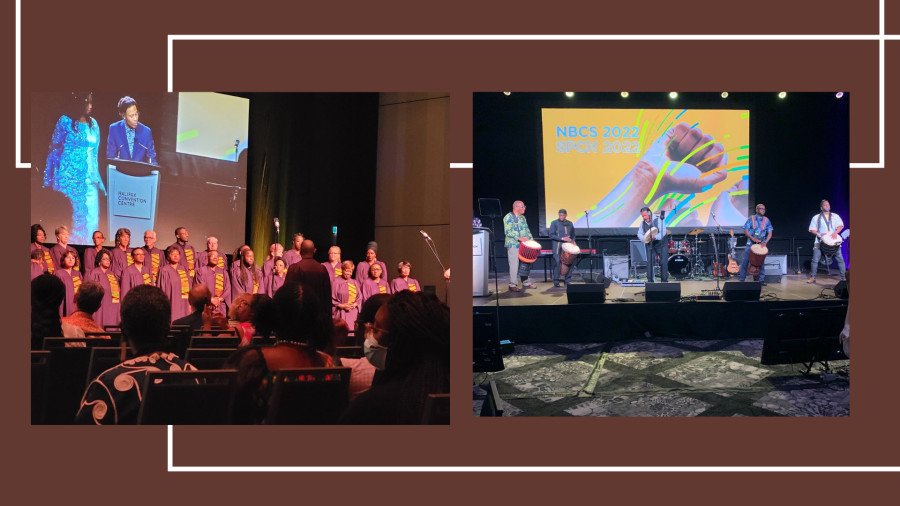
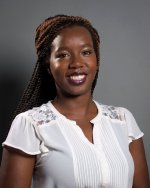 By
By 

